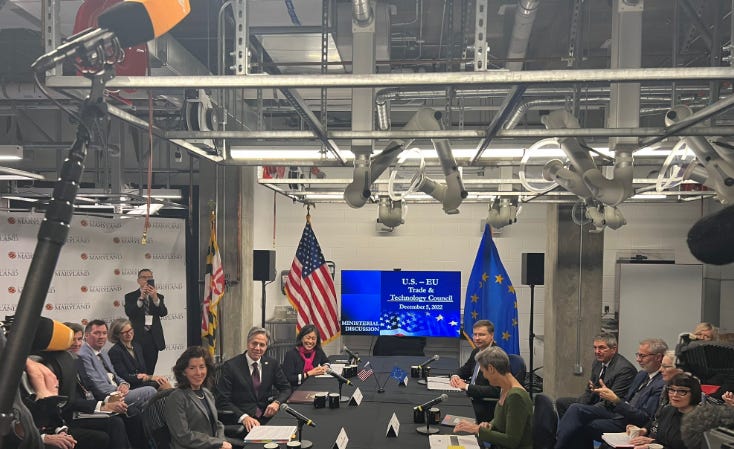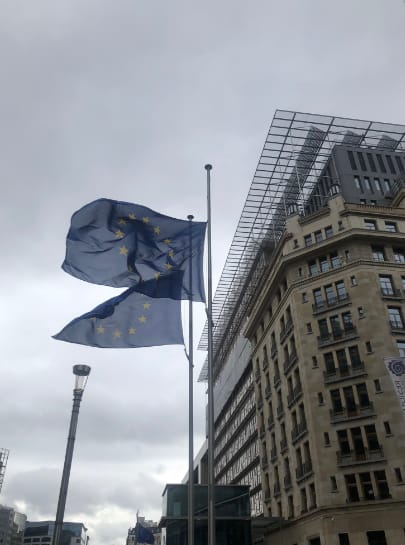Brussels reckons Big Tech's staffing losses could be its own gain.
Amid a wave of layoffs, hiring freezes and resignations at companies like Meta and Twitter, European Union officials hope to snap up talent to help enforce the bloc’s new online content rules, known as the Digital Services Act (DSA). However, the plans could face obstacles ranging from conflicts of interest to difficulty recruiting.
The European Commission has been on a hiring spree to build the teams that will police and investigate how the biggest online platforms — like Facebook, Twitter, Google and TikTok — crack down on illegal and harmful content, from disinformation to cyber-violence, starting in summer 2023. Workers with insider knowledge about how social media giants operate would make valuable additions.
“The door is open,” said Stephen Quest, director general at the Commission’s Joint Research Centre, the Seville-based body in charge of providing tech know-how for the content rules' upcoming enforcement. “It seems self-evident that people who've got experience working in the large tech platforms are going to have relevant skills.”
Candidates had until Monday (Jan 23) to apply for nearly 70 new jobs for data scientists, lawyers and artificial intelligence specialists. Among the potential tasks as part of DSA enforcement are inspecting Big Tech companies’ premises, examining their algorithms and combing through their data.
Big Tech employees’ knowledge and expertise are in high demand in Brussels. Many helped build the complex algorithms that regulators will now oversee, while others shaped the content policies that the EU’s new playbook will target.
Even with more tech layoffs expected this year, Brussels may have trouble enticing workers who are used to six-figure salaries with bonuses to apply for roles where pay hovers between €50,000 and €70,000, based on the job requirements posted online.
A senior Commission official said hiring for the DSA enforcement teams had been complicated because the European institution is “not an attractive employer in terms of salary” compared with private companies.
Across the Channel, the United Kingdom’s Office of Communications (Ofcom) has earmarked tens of millions of pounds to hire up to 500 people to enforce its own upcoming content-moderation plan, the Online Safety Bill.
Among the U.K.’s prized recruits are Jessica Zucker and Gill Whitehead, formerly senior executives at Meta and Google's parent company Alphabet, respectively. The British regulator has often sweetened the pot with incentives like one-off bonuses to lure industry expertise.
The prospect of a revolving door between Big Tech and regulators is also sparking unease.
In other industries, most notably financial services, staffers repeatedly move from the public to the private sector, where they can earn better salaries based on their insider knowledge and regulatory experience.
There concerned that may also happen with the bloc's upcoming online content rules, because those working within this field would be able to offer companies invaluable expertise. One added that the Commission was also looking to hire from the academic sector to avoid any potential conflicts if — or when — tech engineers and policy executives decided to make a return to the industry. The officials spoke on the condition of anonymity to discuss internal deliberations.
The Commission has provisions in place, including a so-called cooling-off period of two years, before some officials could be hired by companies they once regulated.
A senior Commission official said a potential solution could be to put some former Big Tech staffers at arm’s length in the Commission’s Joint Research Centre offices in Italy and Spain. A Commission spokesperson added that Big Tech employees could not immediately investigate their own former companies.
Access Now’s global freedom of expression lead, Eliška Pírková, said while Big Tech employees could provide expertise about the "opaque architecture" of their former companies, the Commission should still be more transparent about its hiring process "to avoid any potential corporate capture."
The Commission will have to act fast — and forcefully. Faced with mounting concerns about how platforms moderate content, especially since tech mogul Elon Musk took over Twitter, the EU’s Internal Market Commissioner Thierry Breton promised in December to enforce the DSA “no later than September 1, 2023.” The clock is ticking.
“My biggest concern is that we have to do this very fast,” said the Joint Research Centre's Quest. “We’re not as agile as a tech company that can really hire somebody on two days’ notice, or indeed fire them on two days’ notice; we can’t do that.”





